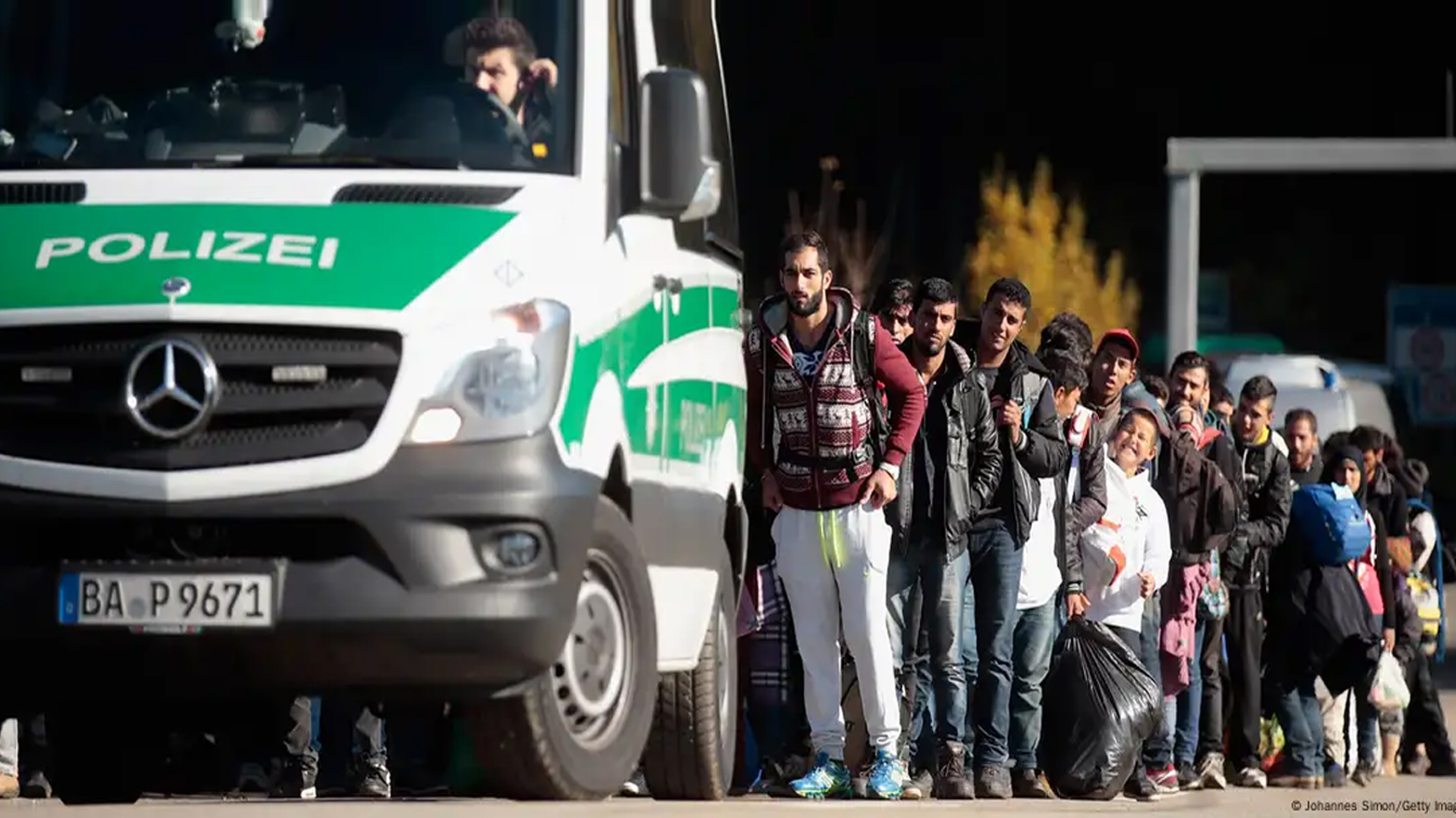Germany Seeks Agreement with Syria to Deport Rejected Asylum Seekers
Germany seeks an agreement with Syria to deport rejected asylum seekers, starting with criminals and those without residency rights, while the UN reports one million refugees have returned since December 2024 amid ongoing reintegration challenges.

ERBIL (Kurdistan24) - Germany announced on Saturday, that it intends to conclude a swift agreement with Syria to facilitate the deportation of rejected asylum seekers. Interior Minister Alexander Dobrindt declared his government’s readiness to advance negotiations, stressing the need to distinguish between those who have successfully integrated into German society and the labor market, and those who lack legal asylum status and remain dependent on state subsidies.
“We want to reach an agreement with Syria this year, starting first with the deportation of criminals, followed by those who did not obtain residency rights,” Dobrindt told the German daily Rheinische Post. He confirmed that talks with Syrian officials would begin soon, and revealed that he has instructed the Federal Office for Migration and Refugees to partially resume suspended asylum procedures for Syrians in preparation for deportations.
The German Interior Ministry clarified that while no deportations to Syria have taken place since 2012, voluntary returns have slowly increased since the overthrow of Bashar al-Assad’s regime in December 2024. Official data show that 1,867 Syrians have voluntarily returned to their homeland with federal government support up to the end of August this year. By the end of July 2025, Germany hosted around 955,000 Syrians, while 83,150 were granted German citizenship last year. Many of those who fled during the 2015–2016 influx now meet the conditions for naturalization.
In parallel, Dobrindt announced plans to organize regular deportations to Afghanistan without relying on third-party facilitators. “My goal is to implement direct and regular deportations to Afghanistan in the future. At present, this is only possible with Qatar’s support, but I want to organize it directly with officials in Kabul,” he stated, describing the discussions as purely technical.
Germany does not maintain diplomatic relations with the Taliban, which retook control of Kabul in August 2021 and remains internationally isolated for its human rights violations, particularly against women. Since the Taliban’s return, only two deportation flights of Afghan criminals from Germany have taken place with Qatari mediation, both widely criticized by human rights groups and refugee advocates.
The German initiative comes as the United Nations confirmed on September 24, 2025, that one million Syrian refugees have returned to their homeland since the fall of Assad’s regime, marking one of the largest repatriations in recent history. UNHCR described the mass return in just nine months as an “extraordinary sign of hope,” yet warned that Syria’s shattered infrastructure, fragile economy, and volatile security conditions continue to impede sustainable reintegration.
According to the UN agency, alongside the one million refugees returning from abroad, 1.8 million internally displaced persons have also gone back to their areas of origin since December 2024. Still, more than seven million Syrians remain displaced within the country and over 4.5 million are refugees abroad.
“These men, women, and children endured immense suffering, and the most vulnerable among them still require protection and assistance,” UNHCR chief Filippo Grandi stated. He cited surveys showing that 80 percent of refugees in Jordan, Lebanon, Egypt, and Iraq wish to return, with nearly one in five planning to do so within a year.
Grandi emphasized that this moment presents a “rare opportunity to resolve one of the largest displacement crises in the world,” but lamented dwindling humanitarian funding. UN agencies inside Syria have received less than a quarter of what is needed this year, while the broader regional response plan has been funded at only 30 percent.
The announcement followed Syrian Interim President Ahmad al-Sharaa’s speech at the UN General Assembly in New York, in which he described the transition as “the Syrian story from oppression to liberation.” In a sweeping address, al-Sharaa accused the former regime of committing mass atrocities, including chemical weapons use in over 200 documented cases and the displacement of 14 million people.
He vowed that his transitional government had dismantled “a system of oppression that lasted sixty years” and committed to justice, reconciliation, and reconstruction. Al-Sharaa pledged trials for perpetrators of atrocities, the creation of national commissions on transitional justice and the missing, and the restructuring of state institutions under centralized civilian authority.
Outlining his administration’s priorities, al-Sharaa stressed balanced diplomacy, security stabilization, and economic revival. He called for the full lifting of international sanctions to enable reconstruction and revealed that Syria’s markets have already opened to global investment. “Major companies are entering to contribute to rebuilding Syria,” he declared.
While al-Sharaa hailed the dawn of “a new chapter of peace, prosperity, and development,” UNHCR cautioned that returnees continue to face immense hardships. Entire neighborhoods remain in ruins, essential services are unreliable, jobs are scarce, and security concerns persist.
“The determination of returnees will falter without targeted international support,” the agency warned, urging donors to step up investments in areas of return.
The developments reflect a stark duality: on one side, European states like Germany are preparing to accelerate deportations, aligning with Syria’s shifting political landscape; on the other, millions of displaced Syrians remain caught between fragile hope and the unyielding challenges of daily survival.
For the million who have returned, the decision symbolizes faith in a future beyond war. For millions more scattered across the Middle East and beyond, the path of return remains bound not only to Syria’s evolving politics but also to the international community’s willingness to transform tentative stability into lasting peace.